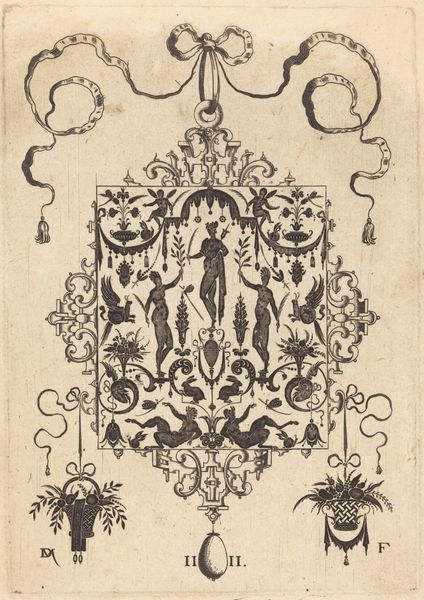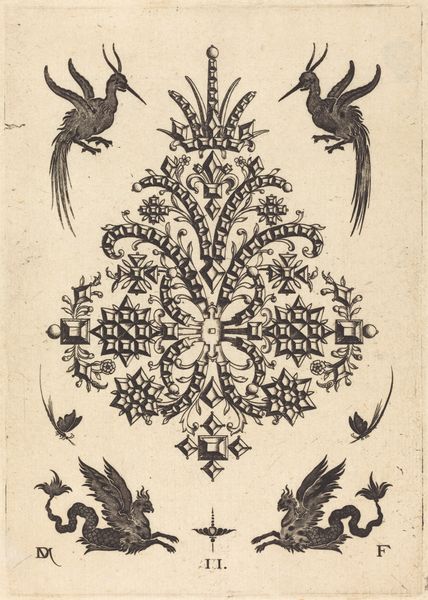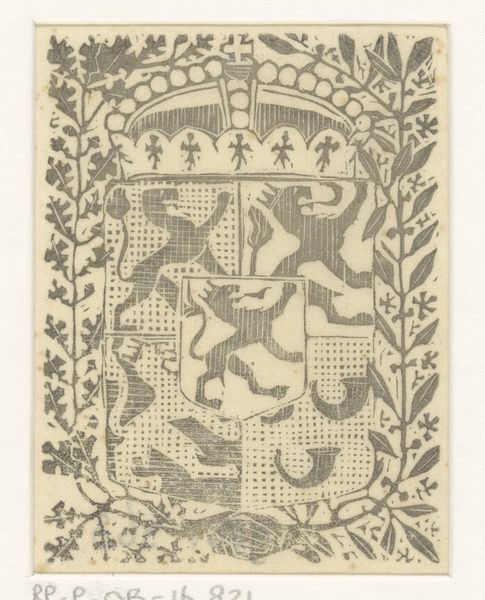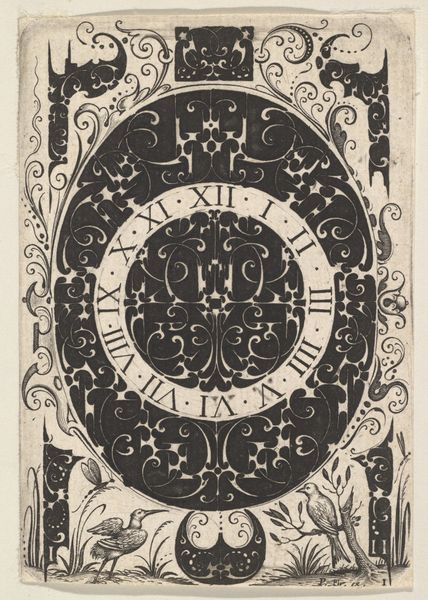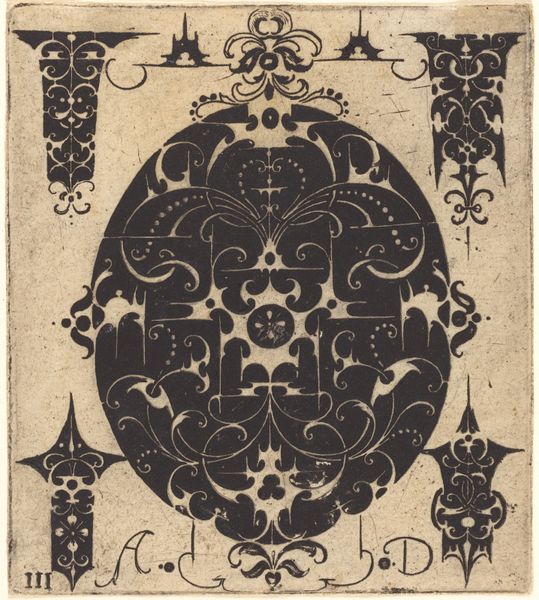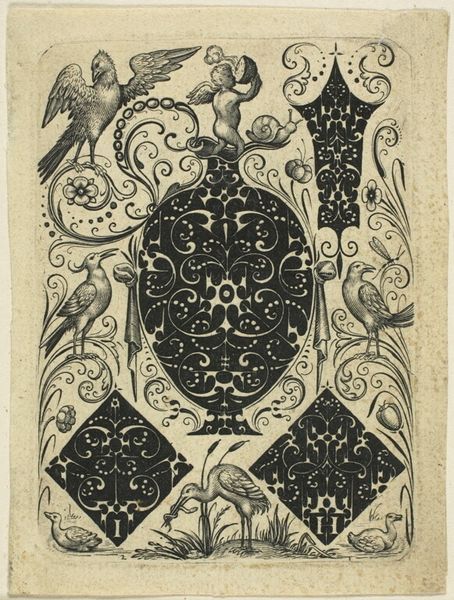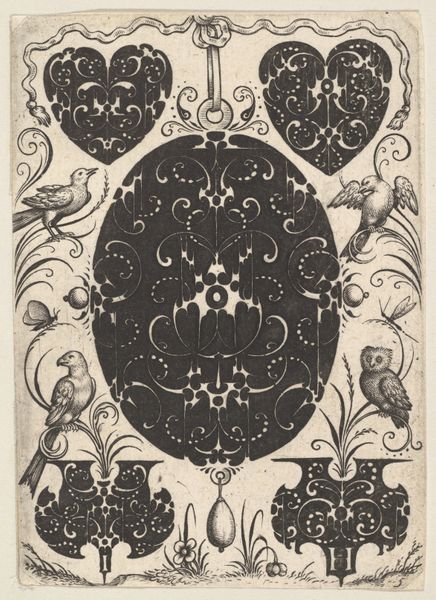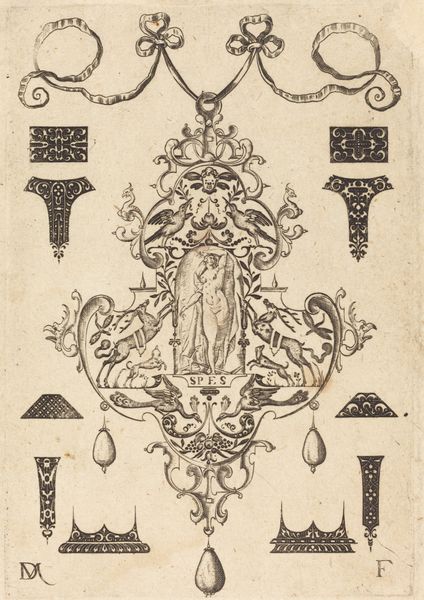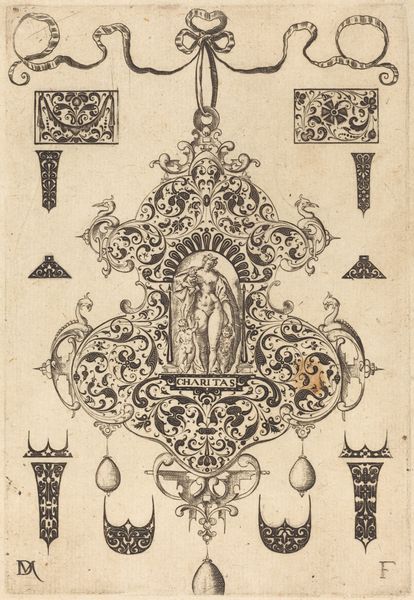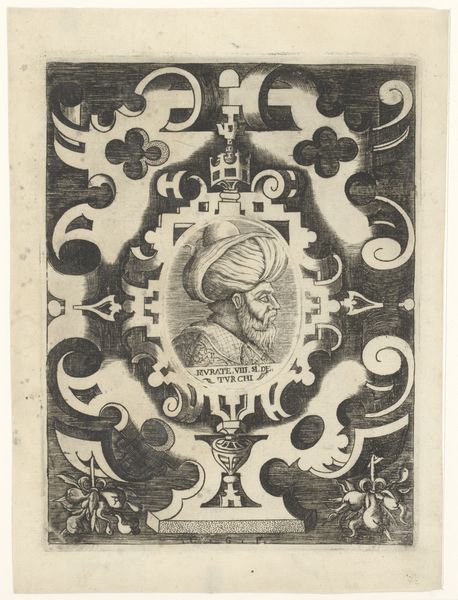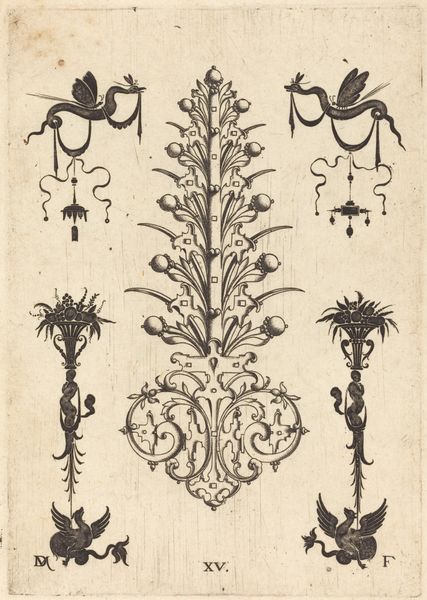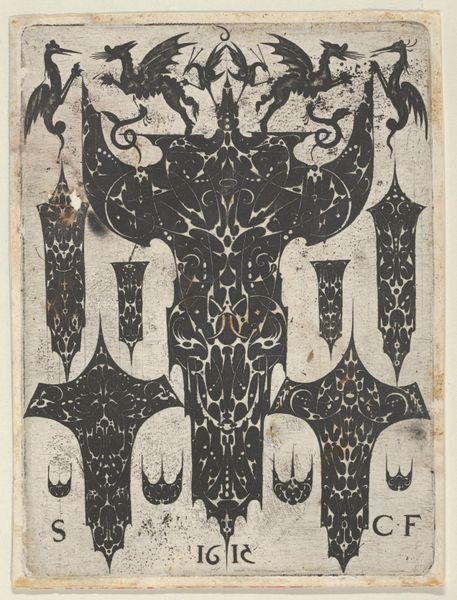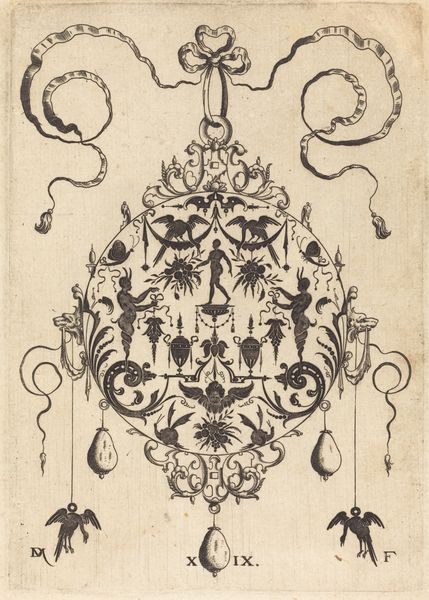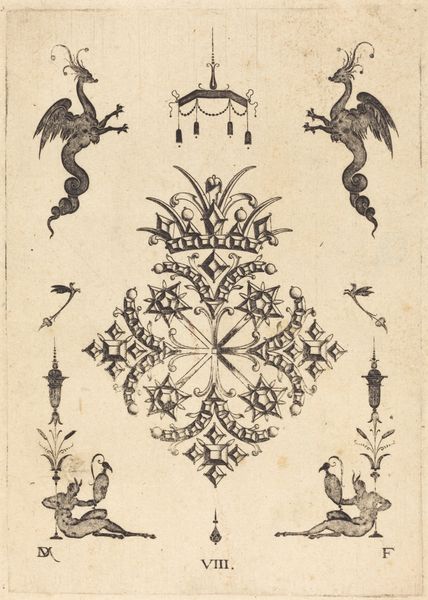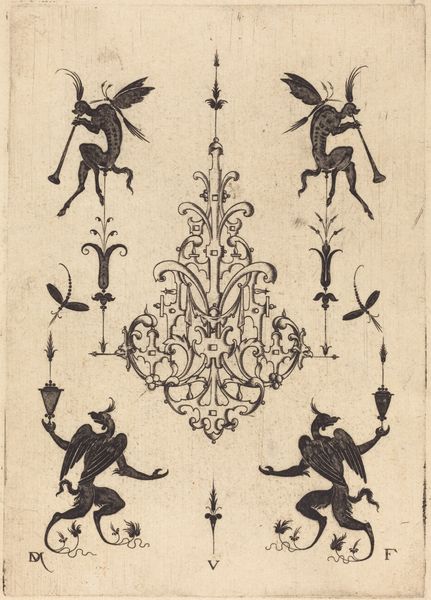
drawing, graphic-art, print, paper
#
drawing
#
graphic-art
#
art-nouveau
# print
#
pattern
#
landscape
#
flower
#
paper
#
plant
#
symbolism
#
pattern repetition
#
decorative-art
#
layered pattern
Dimensions: height 357 mm, width 284 mm
Copyright: Rijks Museum: Open Domain
Theo Nieuwenhuis created this calendar sheet for June 1898 using lithography, a printmaking process that relies on the chemical repulsion of oil and water. The design features a sinuous, stylized figure surrounded by butterflies and foliage, typical of the Art Nouveau style. Lithography allowed for the reproduction of intricate designs, making art accessible to a wider audience. The process involves drawing on a stone or metal plate with a greasy crayon, then treating the surface so that ink adheres only to the drawn areas. The print is then made by pressing paper against the inked surface. Consider the social context: this calendar was likely mass-produced for commercial purposes, reflecting the rise of consumer culture at the turn of the century. Yet, the artist's hand is evident in the delicate lines and organic forms, blurring the lines between art, craft, and industry. The material and making of this calendar highlight the changing landscape of art production, where traditional techniques were adapted for modern methods of distribution.
Comments
No comments
Be the first to comment and join the conversation on the ultimate creative platform.
